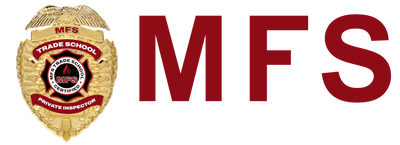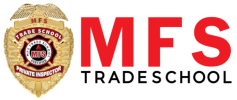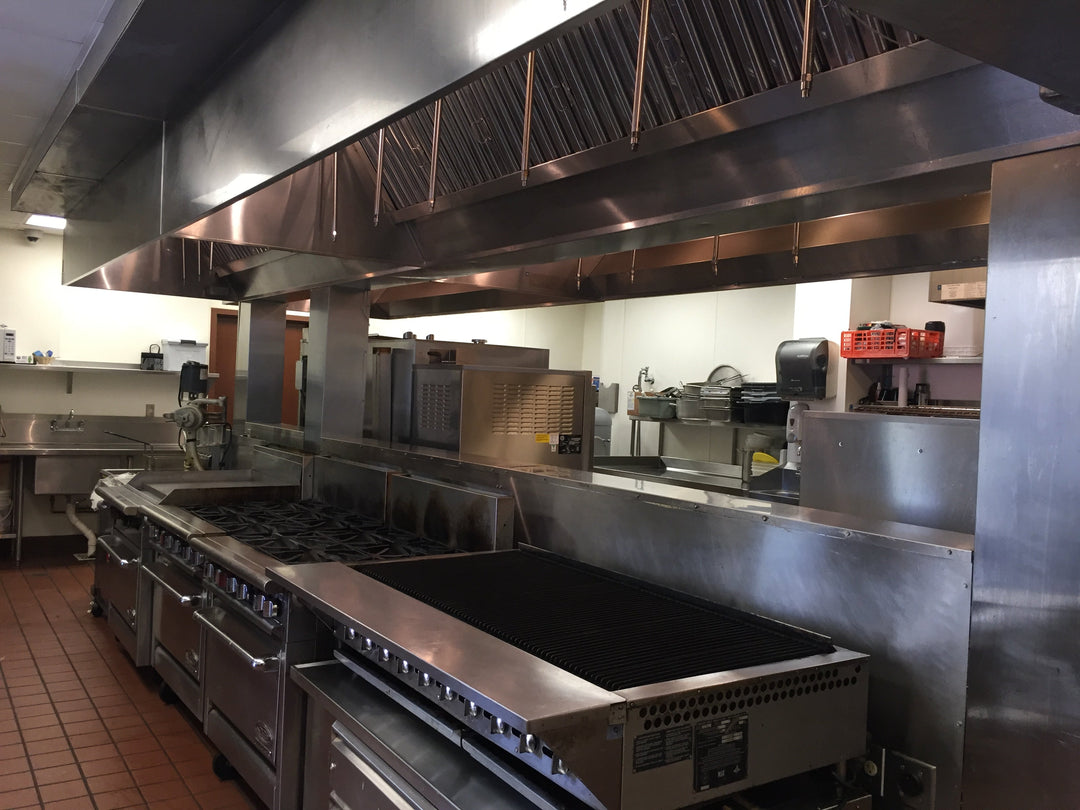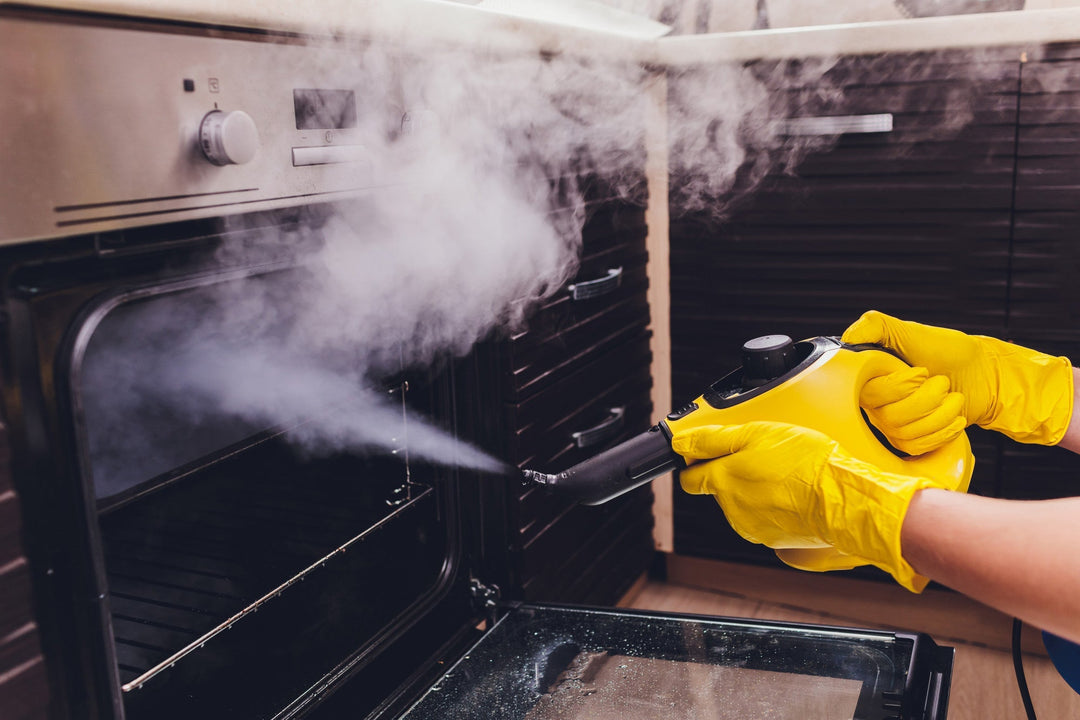Top 5 Myths About Kitchen Hood Cleaning You Need to Know

Commercial kitchen owners and managers face a myriad of challenges in maintaining a safe, efficient, and compliant workspace. Among these challenges, the importance of regular and thorough kitchen hood cleaning often gets lost amidst the hustle and bustle of daily operations.
Unfortunately, misconceptions about hood cleaning abound, leading many to underestimate its significance or even neglect it altogether. These myths not only jeopardize the safety of the kitchen staff and patrons but also put the business at risk of fire hazards, health code violations, and costly repairs.
In this article, we'll tackle some of the most pervasive myths surrounding commercial kitchen hood cleaning, shedding light on the truth behind these misconceptions. By understanding the importance of proper hood maintenance, restaurant owners and managers can ensure a safer, healthier, and more efficient kitchen environment.
Myth 1: Hood Cleaning is Only Necessary When There's a Visible Problem
One of the most common misconceptions about kitchen hood cleaning is that it's only required when there's a noticeable issue, such as visible grease buildup or poor ventilation. However, this couldn't be further from the truth. Hood cleaning is a proactive measure that should be performed regularly to prevent problems from arising in the first place. Learn more about preparing your kitchen for professional hood cleaning.
What is Hood Cleaning?
Hood cleaning is the process of thoroughly cleaning and maintaining commercial kitchen exhaust systems, including hoods, filters, fans, and ductwork. For more details, refer to our FAQs about kitchen exhaust hood cleaning. This comprehensive approach ensures that all components of the exhaust system are free from grease, grime, and other contaminants that can accumulate over time, which is essential for maintaining Vent-A-Hood® range hoods.
Regular hood cleaning is essential for several reasons, and following range hood maintenance tips can help ensure optimal performance and safety:
-
Preventing grease buildup: Grease accumulation in the exhaust system is a leading cause of kitchen fires. By removing grease regularly, the risk of fire is significantly reduced.
-
Ensuring proper ventilation: Clean exhaust systems allow for better airflow, improving the overall air quality in the kitchen and creating a more comfortable working environment for staff.
-
Maintaining a safe kitchen environment: A clean hood system contributes to a safer kitchen by reducing the risk of fire, improving air quality, and ensuring that the exhaust system is functioning properly.
The Importance of Regular Cleaning
Neglecting regular hood cleaning can have serious consequences. Grease buildup in the exhaust system is a prime cause of kitchen fires, which can devastate a business, causing significant property damage, injuries, and even loss of life.
Moreover, failing to maintain a clean hood system can result in health code violations and fines. Local health departments and fire marshals regularly inspect commercial kitchens to ensure compliance with safety regulations. A dirty or poorly maintained hood system can lead to citations, fines, and even temporary closure of the establishment.
It's also crucial to note that non-certified hood cleaning—such as attempting to clean the system in-house or hiring an unqualified contractor—can result in incomplete cleaning, missed potential hazards, and non-compliance with safety regulations. Investing in professional, certified hood cleaning services, such as those offered at MFS Trade School, ensures that the job is done right, minimizing risks and maintaining a safe and compliant kitchen.
Myth 2: DIY Hood Cleaning is Just as Effective as Professional Services
The Complexity of Hood Systems
Commercial kitchen exhaust systems are intricate and demand a high level of expertise for proper maintenance. Unlike simpler residential setups, these systems consist of interconnected components such as hoods, filters, fans, and ductwork that require careful attention. Each part plays a critical role in ensuring efficient ventilation and safety, necessitating specialized knowledge to manage effectively.
Without the appropriate expertise, attempts to clean these complex systems can lead to issues. For restaurant owners and managers, hands-on exhaust cleaning coaching can provide the necessary skills to manage these systems effectively. Residual grease in hidden areas poses significant fire risks, while improper handling can damage sensitive components, affecting the system's performance and durability. Understanding kitchen hood maintenance essentials can help mitigate these risks.
The Benefits of Professional Cleaning
Certified technicians are equipped with the necessary training and cutting-edge tools to conduct comprehensive cleanings, such as those offered through hands-on training for kitchen exhaust hood cleaning. Their specialized equipment effectively tackles the grease and residue typical in commercial settings, ensuring optimal exhaust system functionality and improved air quality. For step-by-step guidance, you can also learn how to clean a range hood.
Myth 3: All Hood Cleaning Services are the Same
Varying Levels of Expertise
The misconception that all hood cleaning services deliver the same quality can lead to costly oversights. In reality, companies vary widely in their levels of training, certification, and hands-on experience. The skill level of technicians is crucial to the effectiveness of the cleaning process and the overall safety of the kitchen.
Choosing a company with certified technicians ensures adherence to industry regulations and best practices. These companies prioritize ongoing training, equipping their teams with the latest methods and technologies to tackle complex cleaning challenges efficiently. This dedication to professionalism differentiates them from less experienced competitors who may not possess the necessary expertise to handle intricate cleaning tasks effectively.
Comprehensive Cleaning Approach
Instead of merely cleaning visible components, a thorough approach encompasses the entire exhaust system. This includes detailed inspection and cleaning of filters, fans, and ductwork—areas often neglected but vital for maintaining optimal airflow and preventing fire hazards.
High-quality services employ advanced equipment and tailored techniques to address the specific needs of each component. For example, industrial-grade degreasers and precision tools ensure that all parts are free from grease and contaminants. Maintaining a clean and efficient exhaust system enhances kitchen safety and operational performance, ensuring compliance with health regulations.
Myth 4: Hood Cleaning Frequency is the Same for All Kitchens
Factors Affecting Cleaning Frequency
The frequency at which kitchen hoods require cleaning is influenced by several key factors. The nature of the cuisine and cooking methods significantly dictate the cleaning schedule. Establishments that specialize in high-grease cooking techniques, such as frying or grilling, naturally accumulate more grease in their exhaust systems and therefore demand more frequent maintenance. Conversely, kitchens focused on steaming or baking might see less grease buildup, allowing for longer intervals between cleanings.
Another crucial factor is the kitchen's operational volume. High-capacity kitchens, such as those found in bustling restaurants or catering facilities, produce a greater volume of residue. This necessitates a more frequent cleaning regimen to ensure that exhaust systems remain operationally effective and safe. Additionally, regional health and safety guidelines often specify cleaning intervals to ensure compliance, which must be factored into the maintenance schedule.
Customized Cleaning Schedules
Recognizing the diversity in kitchen operations, an off-the-shelf approach to hood cleaning frequency is inadequate. Esteemed hood cleaning services provide bespoke cleaning schedules that are meticulously crafted to address the distinct requirements of each kitchen. These schedules are informed by a comprehensive evaluation of the kitchen's specific characteristics, including its cooking practices, production volume, and applicable regulatory mandates.
Myth 5: Hood Cleaning is an Unnecessary Expense
The Cost of Neglect
Neglected grease can compromise the efficiency of exhaust systems, resulting in costly repairs and potential safety breaches. To learn more, consider enrolling in our online course for kitchen exhaust hood cleaning. Regular hood maintenance is a wise investment that enhances both equipment longevity and operational safety. Following a step-by-step kitchen hood cleaning guide can ensure thorough and effective cleaning.
Protecting Your Investment
Regular hood maintenance is a wise investment that enhances both equipment longevity and operational safety. By ensuring that exhaust systems are free from blockages, kitchens can achieve optimal energy efficiency, which translates into reduced operational costs over time. This proactive approach not only safeguards against unforeseen incidents but also fosters a healthier and more productive work environment.






